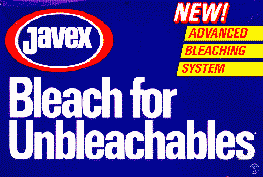



|
|
OLD WAY: Secrecy in Labelling |
NEW WAY: Truth in Labelling |
|
|

|
|
When a responsible Kashruth supervising agency such as the Union of Orthodox Jewish Congregations sells its hechsher to companies that actually do not require Kashruth supervision, it is the kind of abuse that degrades the prestige of Kashruth. To do so is to be on a par with those who fleece the innocent by persuading them to purchase home appliances they really do not need. And when such activities are perpetrated under the guise of religious observances, the crime is greatly compounded!
Seymour E. Freedman, The Book of Kashruth: A Treasury of Kosher Facts & Frauds, Bloch Publishing Company, New York, 1970, pp. 171-172. |
|
There is also a more delicate form of extortion associated with Kashruth. [...] For example, a company will enquire about Kashruth supervision for its product. The truth of the matter is that this product would be acceptable even without supervision, as may be the case with window cleaning liquid, toothpicks, aspirin, corn starch, diaper detergents, etc. The company is not informed that they can sell their product in the Kosher market without supervision. Instead, the company is induced to purchase Kashruth supervision.
Seymour E. Freedman, The Book of Kashruth: A Treasury of Kosher Facts & Frauds, Bloch Publishing Company, New York, 1970, pp. 170-171. |
|
After all [...] we don't look for Kosher diaper deodorants, or Kosher bleaches [...]. And tell me, isn't it ridiculous [...] for a group of people who want to promote Kashruth to certify salt and pepper and vinegar [...]?
Allen G. Feld, writing in the Jewish Spectator, in Seymour E. Freedman, The Book of Kashruth: A Treasury of Kosher Facts & Frauds, Bloch Publishing Company, New York, 1970, p. 171, blue emphasis added. |